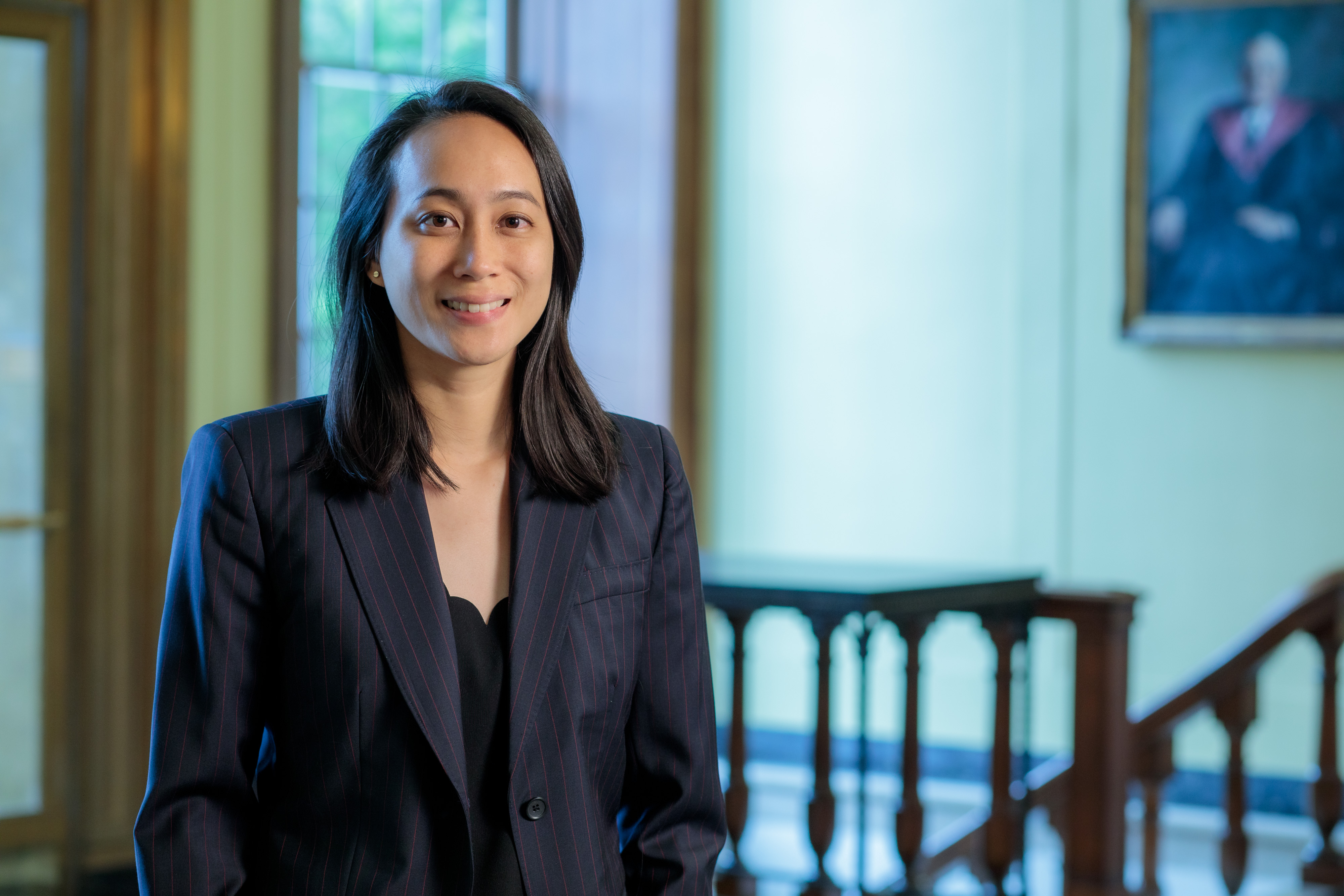I am an Assistant Professor in the Strategy Unit at Harvard Business School. I study innovation strategy — specifically, how firms can uncover new sources of value through their interactions with the wider innovation ecosystem.
I obtained my PhD in Economic Sociology at MIT's Sloan School of Management. I previously worked in defence research, leading projects on elite combat performance; and founded a non-profit organization raising entrepreneurial intention in Singapore. I obtained my BSE in Mechanical Engineering from the University of Pennsylvania, MSE in Mechanical Engineering from Stanford University, and MS in Engineering and Management from MIT.
Research
My research is anchored in organizational learning and economic sociology, examining how learning mechanisms (such as interdependence and cognition), coupled with sociological mechanisms (such as status and legitimacy), influence how and where valued innovations arise in an ecosystem. I utilize both computational simulations and qualitative methods to develop organizational theory that is grounded and extensive.My current work examines this in the settings of ballet, opera, quantum computing and video games.
Select working papers:
- Fu, Carolyn J. "Setting the Stage: The Interplay of Firm Boundary and Learning at the Opera"
Abstract
Vertical integration has traditionally been understood as having distinct advantages for systemic innovation – enabling firms to experiment with different combinations of resources, so as to achieve valuable innovations in product architecture. However, the possibility for disintegrated markets to also provide such innovations has not been well investigated. In this study, we see that if specialized producers in a disintegrated market are motivated by reputational concerns, they likewise experiment with valuable product architectures they can participate in. The market then offers a multitude of systemic innovations that a given firm can leverage. Furthermore, the availability of these systemic innovations in the market means that greater integration can in fact be detrimental to a firm’s attempts to innovate. This study examines this opportunity and challenge through the surprising disintegration of an opera company that sought to integrate for the sake of systemic innovation, but ultimately abandoned this in order to leverage the novel product architectures offered by specialized producers in the market. This study utilizes both a qualitative archival analysis and a computational simulation to clarify the benefits that market-level search for systemic innovations can offer, and demonstrate how a firm can in fact undercut this value by attempting to integrate.
- Fu, Carolyn J. "A Robust Coordination Mechanism to Leverage Diverse Problem Solvers."Previous version available at https://osf.io/9u7q2/
Abstract
Organizations are advised to explore widely for alternative solutions to a given problem. However, due to the presence of interdependencies, the insights from diverse problem solvers can contradict one another. A boundedly rational manager is then hard-pressed to aggregate an underlying set of best practices that can be disseminated firm-wide. Yet this paper demonstrates that this fundamental conundrum can in fact be solved if a manager naively aggregates assuming that no interdependencies exist, and problem solvers adopt the resulting knowledge despite its errors. This forces the organization toward a focal point from which subsequent learning becomes possible. Hence without any understanding of the nature of problem solvers and their solutions, a manager can coordinate them to achieve greater performance than what each can achieve independently.
- Fu, Carolyn J. "Experimental Pas de Deux: Coupled Firm and Audience Learning at the Ballet"
Abstract
Strategies for innovation typically call for firms to isolate their experimentation as much as possible from their core activities, so as to allow them to explore in ways that are not constrained by the existing capabilities or routines of the wider firm. However, such strategies do not consider the fact that audiences, especially in cultural or nascent technological markets, often make sense of the value of innovations by relating these to the firm’s core products. In opposition to prior innovation strategy, this then calls for firms to engage in more incremental experimentation. This paper uses a qualitative archival analysis of a ballet company, coupled with a computational simulation, to elucidate the challenge this creates for experimentation, and how firms might address this through the portfolio of products on offer.
- Fu, Carolyn J. "Maintaining an Edge: Controlling the Entry of Peripheral Innovations into the Core"
Abstract
Valuable innovations tend to originate in the periphery of an industry, where individuals who are less bound by traditional incentives and expectations are more likely to generate ideas that can prove valuable enough to eventually disrupt the existing paradigm. Yet the progression of an innovation from the periphery to the core is unlikely, where consumers typically face a cognitive barrier in understanding the merits of a novel product, or even seeing it as legitimate. Prior work suggests that this barrier can be overcome by leveraging multiple competing perspectives from different market actors (e.g. heterogenous consumers, other firms, curators, regulators, etc.), to create a window of opportunity for a peripheral innovation to be accepted – but this confluence of perspectives can be difficult to control. This study leverages the development of the American Century Cycle – August Wilson’s set of groundbreaking plays about the Black experience – to demonstrate how peripheral innovators can straddle the boundary between core and periphery to take more control over how their products are interpreted, and thus whether and how they enter the core.
Teaching Materials
- Fu, Carolyn J., Juan Alcacer, Kyle Schirmann. "Royal Opera House: Setting the Stage for the Future"
- Fu, Carolyn J., Gabriel Szulanski, Kate Stoppiello, Stacy Straaberg. "Innovation at Ibanez: The Signature Strategy"
Policy Guidance
- Fu, Carolyn J., Lars Frolund, Fiona Murray (2021) "Enabling Mission Impact: Funding Strategies for High-Risk High-Reward Innovation". MIT Innovation Initiative Policy Working Paper.



